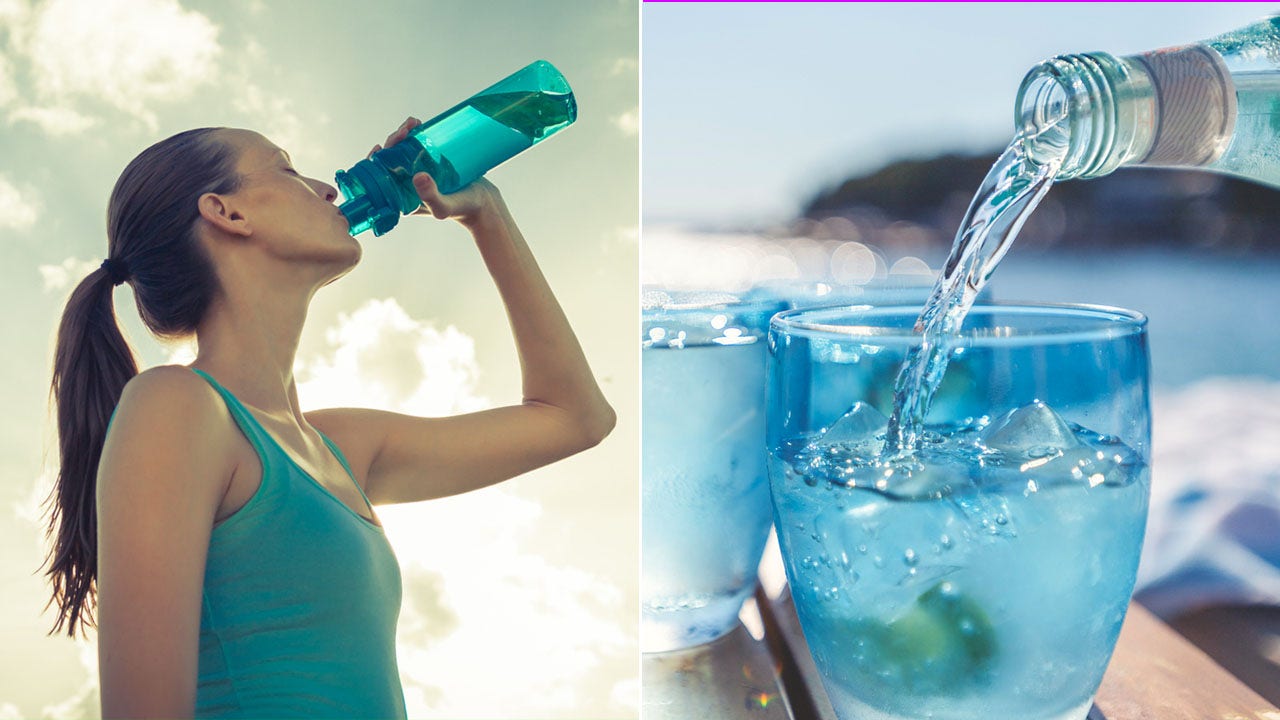Record-breaking heat is sweeping through the Northeast, causing some schools to dismiss students early due to a lack of air conditioning. According to multiple studies, up to 75% of Americans suffer from chronic dehydration, which becomes even more problematic during hot summer temperatures. Dr. Sanjai M. Thankachen, a psychiatrist and physician in Fountain Valley, California, shared valuable tips and warning signs to help individuals stay hydrated in the heat.
During the summer, the body sweats more to regulate temperature, leading to a loss of essential fluids and potential dehydration. It is crucial to maintain hydration in order to regulate body temperature, support organ function, and improve overall well-being, as Dr. Thankachen explained.
To avoid dehydration, it is important to be aware of the early signs, which include thirst, fatigue, dizziness, lightheadedness, dry mouth, dry lips, and dark urine. If left unaddressed, dehydration can progress to heat exhaustion and heatstroke. Heat exhaustion is characterized by weakness, nausea, dizziness, lightheadedness, a weak but faster pulse, and pale, cold, or clammy skin. Heatstroke, on the other hand, is a serious medical emergency that occurs when the body cannot control its internal temperature. It is accompanied by symptoms such as disorientation, loss of consciousness, and hot, red, dry, or moist skin.
Severe dehydration can also lead to kidney problems, an increased risk of kidney stones or urinary tract infections, low blood pressure, and electrolyte imbalances. It is important to note that alcohol exacerbates dehydration, as it acts as a diuretic, causing increased urination and fluid and electrolyte loss. Water is the best way to hydrate, followed by drinks rich in electrolytes without added sugars. Consuming alcohol can impair the release of vasopressin, an antidiuretic hormone responsible for regulating water balance in the body. Dehydration from alcohol manifests as symptoms like thirst, fatigue, irritability, confusion, and headache.
To ensure proper hydration, it is advisable to drink water, as well as drinks with electrolytes and no added sugars, such as fruit-infused water, Pedialyte, and herbal teas. The recommended daily water intake varies depending on factors like age, weight, activity level, climate, and existing health conditions. Monitoring the color of urine can provide insight into hydration levels, with darker urine indicating dehydration and clear or light-colored urine reflecting proper hydration.
In conclusion, staying hydrated is crucial for maintaining overall well-being, regulating body temperature, and supporting organ function, especially during periods of record-breaking heat. By being aware of the signs of dehydration, avoiding alcohol, and prioritizing water intake, individuals can mitigate the risks associated with chronic dehydration. It is always best to consult with a healthcare professional to determine the appropriate amount of fluids to consume for optimal hydration.
Denial of responsibility! VigourTimes is an automatic aggregator of Global media. In each content, the hyperlink to the primary source is specified. All trademarks belong to their rightful owners, and all materials to their authors. For any complaint, please reach us at – [email protected]. We will take necessary action within 24 hours.


